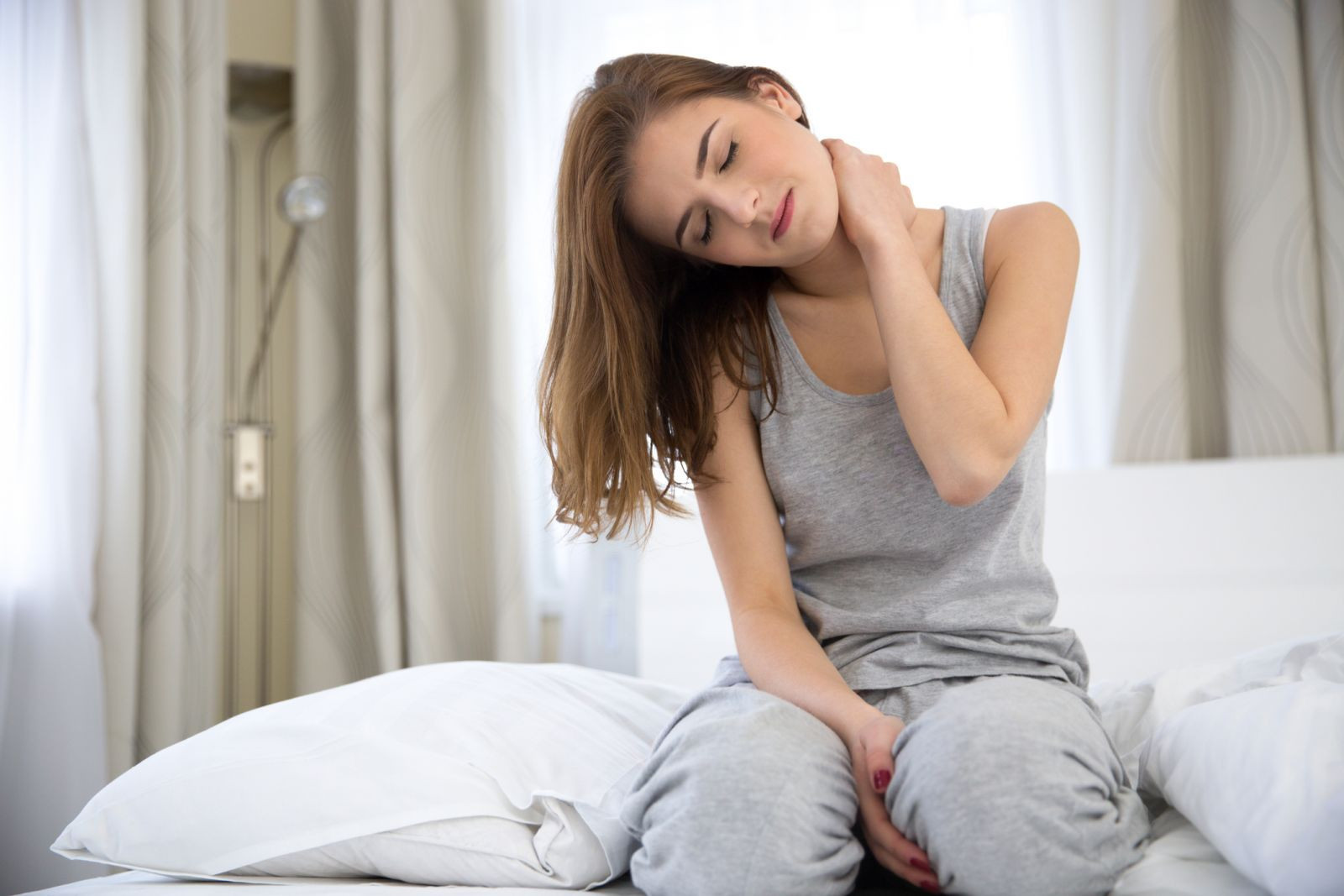
A crick in neck usually results from straining the neck and supporting muscles like the upper back and shoulders. It may also indicate joint inflammation, though less often. Cricks in the neck from sleeping or working late can hinder daily activities. Simple home remedies, especially mild stretches, can usually fix the crick. Knowing how to do it is crucial. This article covers crick in the neck symptoms, causes, and treatment. Let's start.
What Is a Neck Crick?
Most people have experienced a stiff neck, also known as a crick in the neck, which makes head and neck movement uncomfortable. This condition can make your cervical spine stiff, tight, and immobile, which is uncomfortable. Cricks in the neck can be uncomfortable but not painful. If you have a neck injury or illness like whiplash, stiffness and a crick may worsen your pain. Common neck crick symptoms:
-
Neck stiffness and muscle tension.
-
Decreased mobility impairs neck motion, such as turning your head to look over your shoulder.
-
A certain neck movement causes popping.
Causes
Sleeping in an uncomfortable position is the most common cause of neck cramps. Sleeping on your stomach or one side for long periods can cause a severe neck crick.
Other causes include slouching and hunching over a desk all day or staying in one position, especially when traveling. The top three neck crick causes are:
Muscle Cramp
Muscle spasms are uncontrolled contractions. They frequently arise from muscular overexertion or trauma. Strains on the neck and upper back muscles can cause spasms.
Your neck must support your head, which weighs about a bowling ball. Poor head and neck posture multiplies head weight, straining upper back and neck muscles. You can see us anytime for muscle spasms.
Cervical Hernia
Herniated discs arise when the pliable inner core of an intervertebral disc protrudes through the firm outer layer. Since the spinal canal is narrow, any herniation could press on a nerve root. Herniated discs in the cervical spine can cause pain down one or both limbs, but neck pain is not the main symptom. Radiculopathy in the shoulders and upper back can cause neck pain. Most people seek medical advice on ‘how to fix a crick in the neck.’
Stenosis of Cervical Spine
Cervical spine stenosis obstructs the accommodation of the spinal cord and nerve roots within the spinal canal. Spinal osteoarthritis bone spurs often cause stenosis. Cervical spinal stenosis, like ruptured discs, causes radiculopathy more than neck pain.
Treatment Plan for Neck Cricks
Relief is the treatment's goal. There are many easy pain relief methods. These treatments work for cricks in the neck:
Medications
Analgesics relieve pain temporarily. Non-steroidal anti-inflammatory drugs reduce inflammation and pain. Only neck pain requires painkillers. Analgesics are less important than muscle relaxants. These drugs relax taut muscles and relieve neck cramps. Conservative management of muscle stiffness is sufficient.
Massage Therapy
A systematic review found that massage therapy improves mental health and lowers cortisol. Massage is one of the best home remedies for neck cricks. Massage the head and neck to relax stiff neck muscles. Long-term cricks affect the shoulders and upper back. Thus, massage these areas for complete pain relief. Since a stiff neck makes massages impossible, ask a family member for help. Avoid overstretching and pulling because it can cause serious injury. One case study involved a neck crick massage that caused vertebral artery dissection and stroke.
Prolotherapy
Clinically proven to treat a neck in crick, prolotherapy has gained medical attention in recent years. Research shows its pain-relieving, anti-inflammatory, and regenerative benefits. Prolotherapy uses tiny needles to inject natural regenerative solutions. This increases collagen cell production, which repairs damage and cracks the neck.
Prolotherapy permanently fixes cricked neck symptoms by treating the cause.
Physical Therapy
Alternative medicine specialists can help your neck. A chiropractor or physical therapist realigns hard and soft tissues to improve spine and muscle health. Alternative medicine specialists like chiropractors and physical therapists can relieve pain without surgery or medication. Physiotherapy boosts muscle blood flow and healing. Therapy reduces stiffness and improves muscle tone, according to research.
Neck pain sufferers can benefit greatly from this treatment. Physiotherapy and manual spinal adjustment help reset the cervical spine. Physical therapy alleviates paravertebral muscle rigidity, enhancing quality of life in clinical research.
How to Avoid Neck Cricks?
Sometimes getting a neck crick is fine. Here are some ways to prevent it if you get it often.
-
Try different sleeping positions: Instead of a soft mattress and multiple pillows, try a firm mattress and a neck pillow.
-
Check your posture: Sit up straight and don't lean toward your computer while sitting.
-
Swap your desk chair: Try a neck-supporting desk chair if your current one is uncomfortable.
-
Never forget to stretch: If you work at a computer all day, stretch your neck in the morning and throughout the day.
-
Test vitamin D and calcium: Vitamin D and calcium deficiencies weaken neck muscles. You can get it checked after consulting a neck pain doctor in Dallas.
A Quick Review
A "crick in neck," generally induced by muscle tension in the neck and shoulder blade regions. Unlike persistent neck pain, a cough is uncomfortable and usually goes away in a few days with home remedies. Muscle strain from poor posture, excessive bending, or sudden neck movements can cause neck pain. Medical attention is needed for severe neck pain caused by injuries, medical conditions, and spinal issues. Talk to pain management in Dallas if you or a loved one has neck pain to rule out more serious issues. Crick-in-the-neck pain treatment includes over-the-counter pain medication, lifestyle changes, physical therapy, and stress management.
